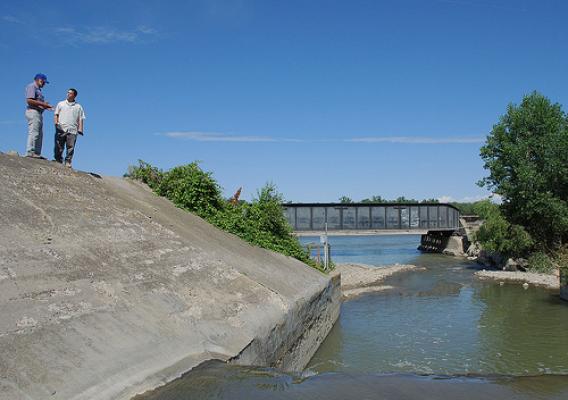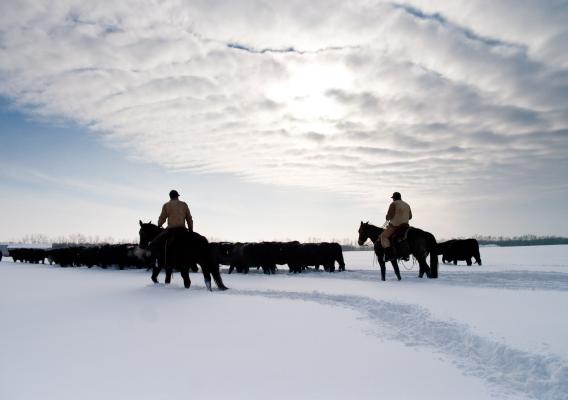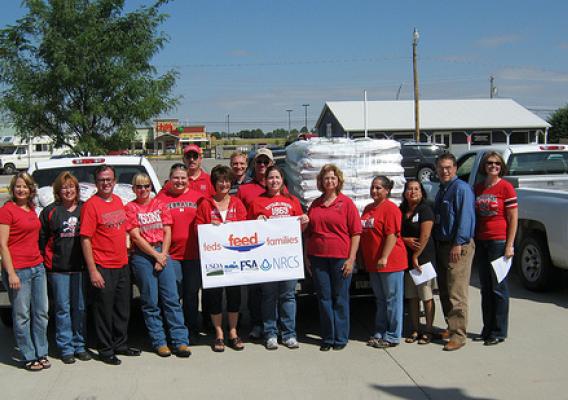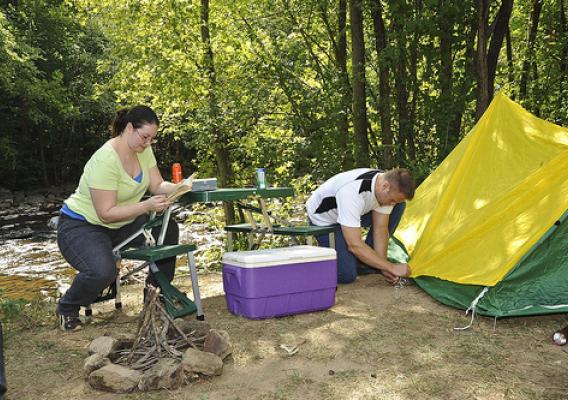The USDA Scottsbluff Service Center, local Agri-businesses and local producers delivered on September 2nd, more than 6,150 pounds of food to the Community Action Partnership of Western Nebraska (CAPWN) in Scottsbluff, Nebraska. The food was collected through the “Feds Feed Families”. CAPWN’s local programs provide a natural partnership for the “Feds Feed Families” campaign because they have an established avenue to distribute to people who are in need.
While Nebraska is known as the “Cornhusker State”, agricultural production in western Nebraska also includes dry edible beans and sugar beets. Kelley Bean, New Alliance Bean and Grain, Stateline Bean Producers Cooperative, Trinidad Benham Corporation and individual producer Leo Hoehn combined to donate 5,700 pounds of navy, pinto and mixed dry edible beans. Western Sugar, a grower owned cooperative, donated 160 pounds of granulated sugar.
When Phillip Mitchell heard about the effort, he brought in 15 dozen ears of locally grown, organic sweet corn from his one and one-half acre plot. Phillip also participates in the Environmental Quality Incentive Program (EQIP) available through the Natural Resources Conservation Service.






